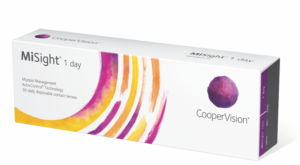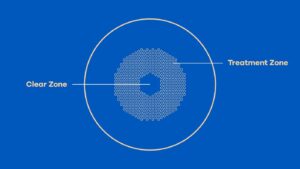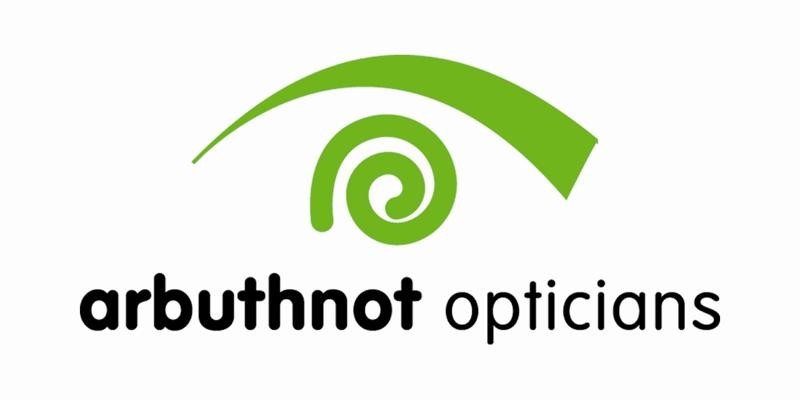Myopia Management
See well… Be healthy…. Look good……
WHAT IS MYOPIA & WHY IS IT A PROBLEM?
Myopia is the inability to see objects clearly in the distance, while near objects can be seen quite well. For this reason, it is sometimes also known as ‘short-sightedness’ or ‘near-sightedness’. In myopia, light that enters the eye comes to a focus in front of the retina. This can be because the eye itself is too long, or that the lens in the eye doesn’t focus the light where it should. It is the most common type of refractive error in children and young people today and typically starts developing in childhood. It can progress slowly or rapidly, and tends to run in families.
Myopia is quickly becoming more prevalent, and it is estimated that by 2050 around 50% of the world’s population will be short-sighted (around 5 billion people), with around 10% falling into the ‘high myopia’ category! There is no definitive answer as to why this is, but it is believed by many researchers to be caused by fatigue from the increasing time spent on close-up tasks. This includes things like reading, studying, using computers or tablets and even scrolling on our phones!
Myopia also comes with some risks. Children with myopia will notice their vision get worse over time. The earlier they develop myopia, the quicker it tends to develop, leaving them with a much higher prescription by the time they are older. In day-to-day life this means a heavy reliance on glasses and contact lenses which can become expensive and tiresome. But more seriously, these people are at a greater risk of complications such as glaucoma, cataracts, retinal detachments and macular degeneration for example.
WHAT CAN WE DO TO SLOW THE PROGRESSION & REDUCE RISK?
Since as early as the 1940’s doctors and researchers have been looking for ways to reduce and even control the change in a patients’ prescription in order to minimise the progression of myopia, as well as improving the quality of life for patients’ with very high prescriptions.
Whilst fitting ortho-K lenses it has long been noticed that the normal increase in myopia that occurs with most myopic children is either halted or slowed dramatically. This has created a whole new field of optometry known as myopia control or myopia management. With myopia management, as well as giving you excellent vision, we are aiming to give you good, stable vision for the rest of your life and reduce your risk of serious eye disease. Arbuthnot’s is one of the few practices in the local area with an interest in this field.
Find out more about the increasing prevalence of myopia in the UK from The College of Optometrists or you can also view lots more myopia facts and figures at https://www.myopiacare.org/
Orthokeratology or ortho-K is a fascinating procedure that we have been using here at Arbuthnots since the mid 1990s, serving patients from across South Wales as well as further afield.
It is a procedure whereby a patients’ prescription is manipulated by using hard contact lenses to compress and reshape the cornea. The cornea is the clear window at the front of the eye, and its’ curvature determines our prescription. Therefore, changing the curvature of the cornea can affect a patients’ prescription and, in many cases leave them glasses free after the lenses are removed.
In Ortho-k a lens is fitted which will compress the patients’ cornea overnight while they are asleep, leaving them glasses and contact lens free during the day. As well as helping to improve the day-to-day lives of these patients, there is now evidence to suggest that the process of Orthokeratology actually slows the progression of myopia which young people would normally see through their childhood and teenage years. It is a process worth considering for any short-sighted children with short-sighted parents.
WHO ELSE WOULD BENEFIT FROM ORTHO-K?
Those considering laser surgery but would prefer a reversible alternative
Those who play contact sports or water sports and find they lose their lenses
Those who work in dusty environments and find conventional contact lenses uncomfortable
Orthokeratology is separate from your normal eye examination as it requires specialist digital mapping of the cornea to make sure the lens is fitted correctly, and to monitor changes brought on by the wearing of the lenses.
Orthokeratology is a painless procedure and starts at £35.00 per month to include all consultations, contact lenses and cleaning solutions.
We offer this procedure at our Barry practice so please contact us on 01446 735551 to arrange an appointment.
While Orthokeratology has been shown to be effective at slowing the progression of a myopic prescription, wearing hard contact lenses may not be the first choice, especially for children.
Children lead active, jam-packed lives. But whether they’re playing pretend, riding bikes with their friends, or learning new things at school, myopia (short-sightedness) can make it harder for them to engage in the activities they love. And as they grow, their prescription may get stronger too.
Fortunately, your child may be able to benefit from an innovative technology to help make his or her life easier and help slow down the progression of their myopia: MiSight 1 day contact lenses from CooperVision. MiSight 1 day with ActivControl Technology not only correct short-sightedness—they’re also the first soft contact lenses proven to significantly reduce the progression of myopia in children. When wearing MiSight 1 day contact lenses, your child can experience clear vision, freedom from glasses and continue to enjoy the activities they love.
MiSight lenses are the confident choice for your child. Of children aged 8-15, who had never worn contact lenses before:
· 90% of children said they preferred wearing their MiSight 1 day contact lenses over wearing their glasses.
· 90% of children were able to insert and remove MiSight 1 day lenses on their own.
· MiSight 1 day contact lenses are clinically proven to slow down short-sightedness progression in children by 59% on average.

If you think that MiSight lenses might be the right choice for your child, or would like more information then don’t hesitate to get in touch or ask your optician at your next appointment.
MiYOSMART from Hoya is a brand new, non-invasive tool in myopia management in children –a glasses lens which is both safe and convenient -just like ordinary spectacle lenses! The lenses feature cutting edge DIMS (Defocus Incorporated Multiple Segments) technology to help slow the progression of myopia in wearers by an average of 59%. They have also been shown to slow axial length elongation by an average of 60%!
The lenses provide vision correction so that the wearer can enjoy comfortable vision in everyday wear. All this whilst working to reduce the progression of their short-sightedness. They are easy to adapt to and are suitable for full time daily wear for a wide range of activities.
This amazing new development means that treating and managing the progression of myopia can now start at a much younger age, and is accessible to those who can’t / won’t / don’t want to wear contact lenses!
HOW DO THEY WORK?
MiYOSMART lenses feature a central zone of the wearers’ prescription used to give clear vision for everyday tasks like school, sport and TV. Surrounding this zone are multiple defocus segments which extend out towards the periphery of the lens, controlling the progression of myopia. Overall the lens gives 50:50 clear vision and myopic defocus at once, meaning the patient gets a great level of vision and their prescription progression is being controlled simultaneously!


MiYOSMART lenses are made to last and are perfect for active children – they come with an easy-to-wipe special anti-reflective, durable coating. With its Eye Shield, young patients get the added assurance of an impact resistant material and UV protection.
MiYOSMART’s Eye Shield
· Impact resistant
· Thin and light
· Comes with UV protection
CAN MY CHILD HAVE MiYOSMART LENSES?
If your child is myopic, or is showing signs of progressive myopia at their eye test, then the answer is yes! Our optometrists will always let you know if they think myopia management is something that you should be thinking about, and now that MiYOSMART lenses are available even more children can get started early to help prevent future myopia-related issues. MiYOSMART can also be used in conjunction with myopia control contact lenses, so it doesn’t have to be one or the other!
Make sure to ask your optometrist about myopia management at yours or your childs’ test, or contact the practice for more information.



